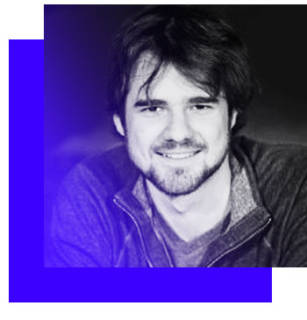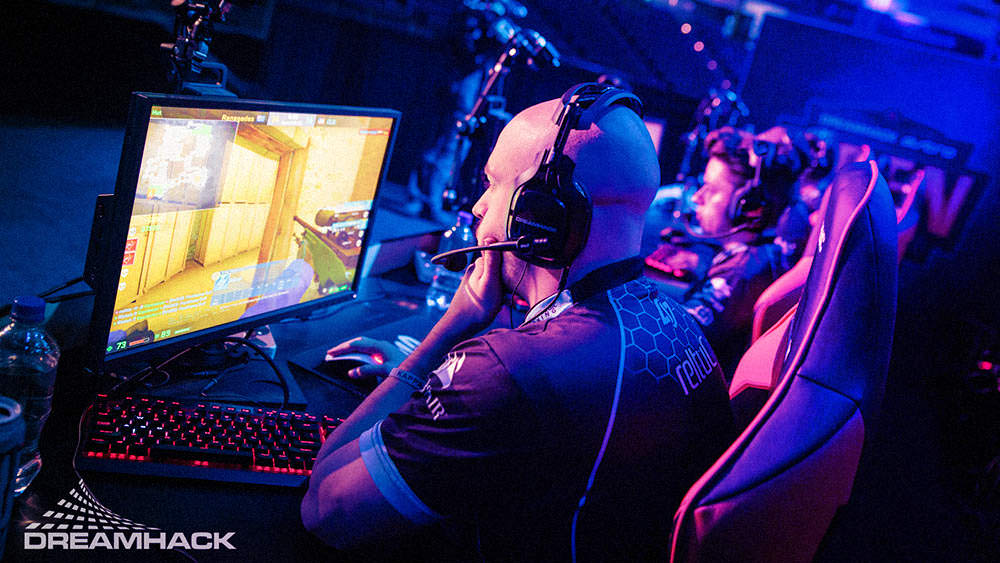
DreamHack Denver (DHD) introduced professional esports to the Mile High City over the weekend, bringing with it some of the world’s top CS:GO, Quake, Halo, Hearthstone, Super Smash Brothers players and more. This is the first time DreamHack has come to Denver and it is estimated to have attracted between 20,000-25,000 visitors.
Michael Van Driel, chief product officer and director of esports for DreamHack, joined AListDaily at the event to discuss the marketing implications of esports.
“We want to be in places where we don’t already see big gaming events and where we think there’s a community that can attach itself to us,” Van Driel said. “When we looked around, it seemed like Denver was a good city for that.”
After more than two decades in Europe, DreamHack brought the world’s largest LAN party to the US last year, which forced the team to think a little differently.
“Compared to other markets, it feels like Americans are constantly being bombarded by so much stuff going on,” said Van Driel. “We had a successful first year in Austin because it was the first ever, [but] I think we took it a little bit for granted how much Americans are bombarded with a million things happening. Keeping [DreamHack] in people’s mind takes a lot more effort than in Europe, it feels like.”
DreamHack sponsors include giants like Twitch and Monster Energy, but the Denver event also attracted newcomers like the Leesa mattress company and money transfer brand, Circle.
“Monster is probably our biggest partner,” said Van Driel. “They’re actually one of the companies that I would give credit to for helping us expand to the States. They started sponsoring us about four years ago, and our friends there kept saying, ‘you have to come to the States’ so they’re one of our biggest backers. They’ve helped make this all possible.
“Circle is actually a new partner. I think for a lot of the brands, there aren’t too many gaming events in Denver and Colorado, so it was good for them that we’re here, whereas a lot of other areas might have been saturated with other gaming events.”
As esports become more mainstream, marketers are attracted to the young, engaged demographic.
“The [marketing] interest is growing more and more, especially from the non-traditional brands,” said Van Driel. “We have a mattress company here exhibiting and looking to reach gamers. More of these brands are really waking up to how big the esports community is. The esports fan has a high disposable income—it’s a great demographic. These are cord-cutters [the brands] aren’t reaching on TV, so there has been more interest from sponsors. It doesn’t happen overnight, so it’s still gradual growth, I would say. BMW and Mercedes are both active in the space, so I think the trend will definitely continue.”
Because of the global nature of DreamHack, not all advertising works in all regions, Van Driel explained.
“We certainly draw lines around certain industries. If you think about advertising alcohol, we need to think about the implications of that. In Germany, our event is 18+ because of laws around violence and video games, so we actually have to age-gate the event and then if the legal drinking age is 18 there, well, that’s not really a problem. Gambling is another big one. A lot of our audience is young kids, so we wouldn’t want to advertise cigarettes, for example. For the most part, we try to keep family-friendly brands and those with a similar code of ethics.”
For brands interested in marketing to the esports fan, Van Driel offered some advice.
“Take your time, do your research, and don’t go too big too fast—but definitely do it. It’s a huge audience, it’s a lot of value. Also, I would say to do it in an authentic way because esports fans can smell bullshit a mile away. It’s really important to engage with them in an authentic way and not just be obnoxious about the advertising. It’s really important to add value to an esports fan’s experience. What we do wouldn’t be possible without our sponsors and I think, for the most part, esports fans have a very positive perception of our sponsors.”

